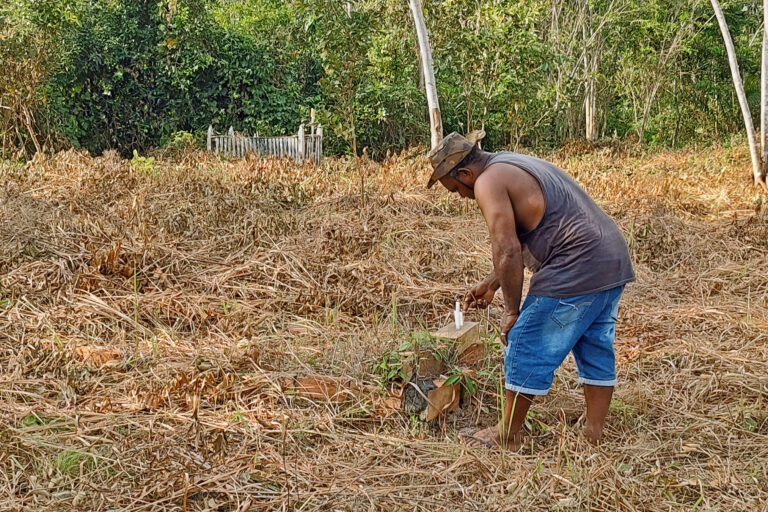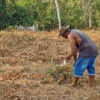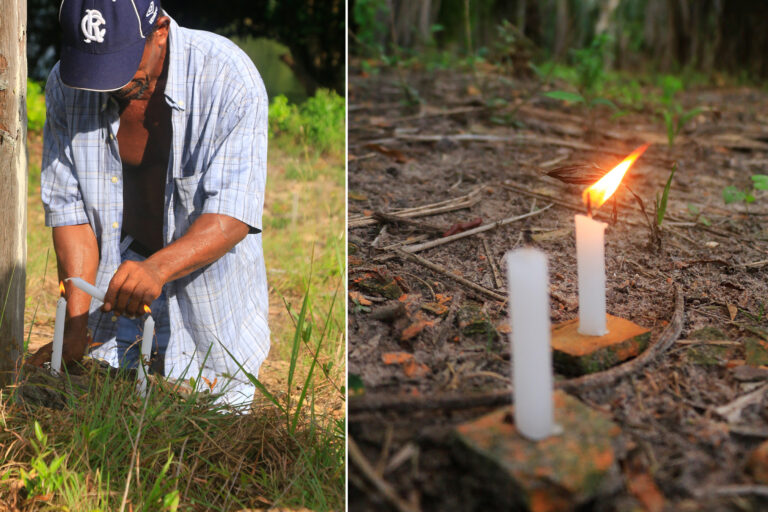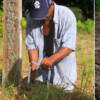In just 72 hours this month, five Indigenous people were wounded by gunfire in violent attacks in a part of the Brazilian Amazon dubbed the “palm oil war” region, sparking outrage and claims for justice.
The suspect, Bruno Heller, destroyed 6,500 hectares (16,100 acres) of Amazon Rainforest for cattle ranching — an area larger than the island of Manhattan — according to authorities.
Between Aug. 4 and Aug. 7, security guards for a palm oil company allegedly shot and wounded five Tembé Indigenous people, in the latest flareup linked to a long-running land dispute. The incidents occurred in a part of the Amazonian state of Pará that’s been dubbed the “palm oil war” region, where Mongabay has over the past year documented the escalating tensions.
In the Ecuadorian Amazon, a region marked by half a century of extractive industries, mainly oil, deforestation is a constant. In recent years, a new threat to the conservation of…
JAKARTA — The tropics lost 10% more primary rainforest in 2022 than in 2021, as forest loss in deforestation hotspots like Brazil and the Democratic Republic of Congo (DRC) continued…
The alerts of illegal mining in the Yanomami Indigenous Land have zeroed for the first time since 2020, according to satellite monitoring by the Brazilian Federal Police.
With Lula taking office early this year, the fund was resumed and should get new donations from the U.K. and the United States.
Indigenous territories with secure land rights not only reduce deforestation inside their lands in the Brazilian Amazon, but also lead to higher secondary forest growth on previously deforested areas, says…
This story was supported by the Pulitzer Center’s Rainforest Investigations Network where Karla Mendes is a fellow. A prominent Indigenous leader was shot in the head on May 14…
In an interview with Mongabay, Alessandra discusses what the prize means to her, the policy changes in Brazil, and the current crisis in the Munduruku territory.
Engineers and realtors from southern Pará take advantage of their knowledge to abet land grabbers.
When asked if he had a message for the world, Júnior Hekurari Yanomami was emphatic: “Don’t buy Brazilian gold.” Júnior, 36, from the Surucucu community on Brazil’s largest and most…
After four years of environmental destruction, Brazil has reached a crossroads that will determine the fate of its biomes and its role in the global climate crisis. In its first…
PORTO VELHO, Brazil — Cruising north in a speedboat along the Madeira River, the signs of Brazil’s illegal gold mining boom are everywhere: mounds of sand extracted from the riverbed…
A Mongabay investigation into land-grabbing in the Brazilian Amazon has led to the suspension of the sustainability certificate of the country's second top palm oil exporter, as shown in email correspondence…
A new legislative proposal, criticized by opponents as a step backwards in recognizing the rights and protections of uncontacted and recently contacted Indigenous people, is currently under debate in Peru’s…
In 2015, researchers in Brazil started a project to address a tricky challenge: Reducing exposure to mercury contamination in the region of the Tapajós River, a major tributary of the…
SÃO PAULO — Since the new Brazilian government under President Luiz Inácio Lula da Silva took office on Jan. 1, its ministries have been working together to overcome a humanitarian…
In January, a wave of outrage swept Brazil after photos and footage of sick and starving Yanomami were made public. The newly sworn-in Brazilian president, Luiz Inácio Lula da Silva,…
XINGU RIVER, Brazil — Deep in the Brazilian Amazon, our motorboat slides past an emerald canopy of rainforest, cascading down to the banks of the Xingu River. Beyond, in the…
ALTAMIRA, Brazil — The warehouse donated to house the Castelo dos Sonhos farmers’ market for local growers has stood empty for nearly 15 years. Opened in 2008 and spanning 480…
Throughout 2022, Colombian authorities identified the presence of 40 dredgers on the Colombian side of the Puré River, with another 200 operating on the Brazilian side, where it is known…
At least 570 Indigenous Yanomami infants have died over the past four years from treatable diseases such as diarrhea and malaria, an average of three every week, highlighting the ongoing…
ST ANDREWS, Scotland — This autumn, Mongabay had the opportunity to interview Nelly Marubo, friend and colleague of Indigenous expert Bruno Pereira, who was brutally murdered in the Brazilian Amazon…
The protected swathes of primary Amazon Rainforest in the Paru State Forest in the north of Brazil became the fifth-most deforested conservation unit in October, official data show. Illegal land-grabbing…
ALTO ACARÁ, Brazil — “The right of those who used to live here to access the cemetery is in the [Brazilian] Constitution. … The cemetery is a sacred place,” sociologist…
Six months ago, more than 100 Indigenous people from five different ethnic groups entered the Itaquaí River, close to the city of Atalaia do Norte, in the Javari Valley, in…
ALTO ACARÁ, Brazil — In November 2021, I went to Pará state, in the Brazilian Amazon, to investigate claims of land grabbing in traditional territories, leveled against one of Brazil's…
ALTO ACARÁ, Brazil — With trembling hands, Raimundo Serrão lights candles for his grandmother at the Livramento Cemetery's cross on the Day of the Dead because he couldn't find her…
Annual deforestation in the Brazilian Amazon dropped 11.27% compared with the prior year, official data show. But the government of President Bolsonaro still accounts for the most Amazon destruction in…


































































